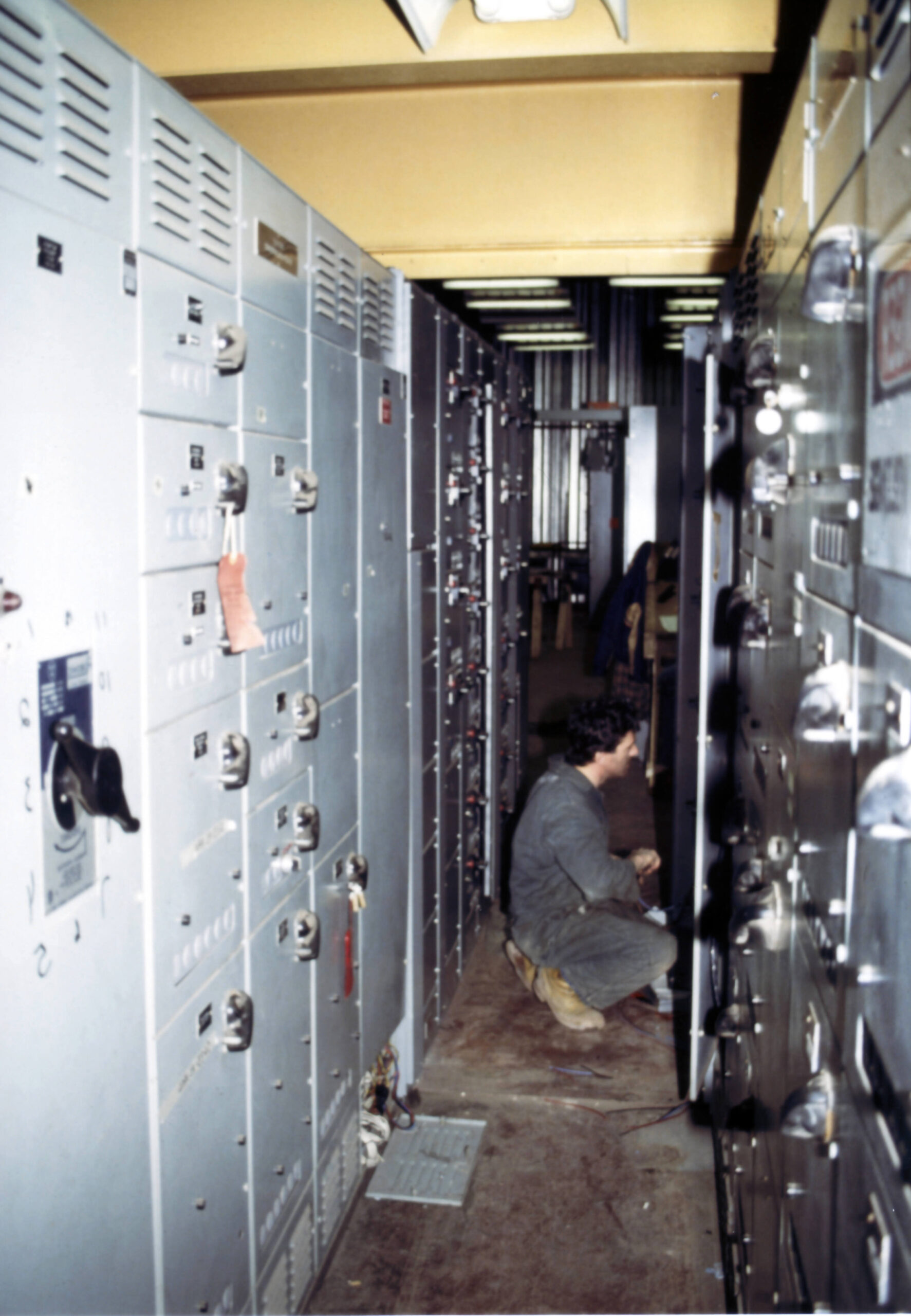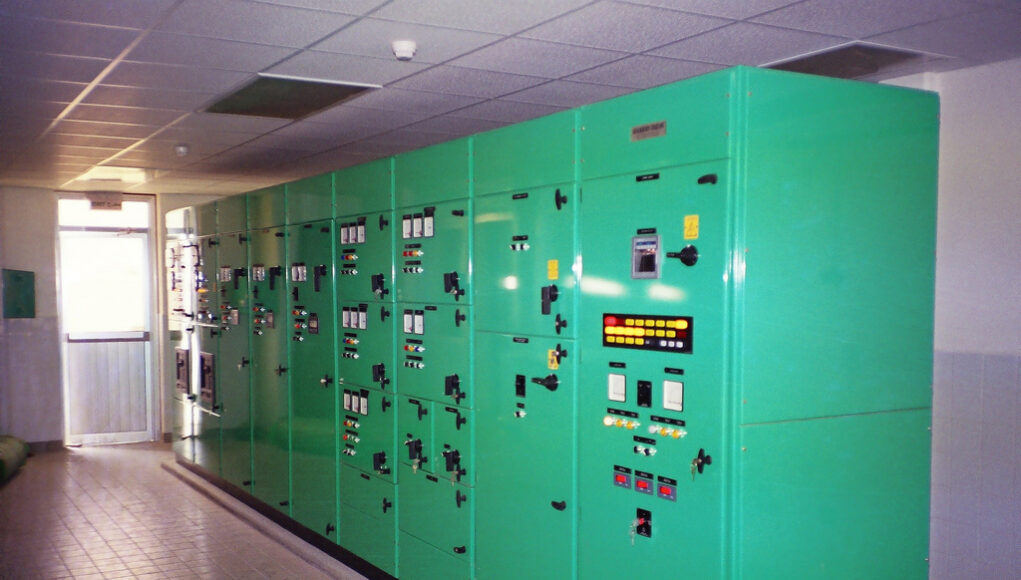The term “motor” refers to a motor as an apparatus that uses electrical energy to carry out mechanical functions like turning the speed of a fan, pump, or blower, for instance. As industrialization progresses, the demand for automation and mechanization of various industrial processes increases. The mechanization of various industrial processes requires many motors, and MCC panels will be required to control the various motors. MCC panels are large enclosure that houses the electronic motor controls.
The MCC can connect the control components. These components can be connected or disconnected, and there is no need for wires to connect the device. The MCC will consist of a busbar and control equipment that could be used to regulate the motor’s operation and place the parts in unison in a panel. The MCC can also be equipped with various motor starter methods, including the DOL and Star-delta starters.
Which are the main components of the MCC (motor control center) panels?
MCC could be utilized to manage several motors, as we have discussed previously. The MCC comprises various components like motor starters, abuses bar, controls equipment, etc. Each of these components is utilized to control the electric motor. These components are put within a panel composed of carbon and iron ferrous.
1. Bus bar
Bus bars are a piece of metal composed of copper, brass, etc. The primary purpose of a bus bar is to distribute or provide the necessary power to electrical equipment. Therefore, the bus bar will act as a power distributor in an MCC. The primary benefit of using the bus bar inside such an MCC is that we could cut out the wiring for several components.
As a result of this, the dimension of the MCC will be decreased and the number of parts it has. This means connecting electrical equipment within an MCC using the bus bar. This could also be helpful to find the problem. It is easy to identify issues in an MCC by using the bus bar.
2. Overload relays
The relays will help to prevent that motor from excessive heat. The overheating may be by the overload of the motor. It could also happen because of the low voltage or the presence of the open-phase in the three-phase system. If the current is drawn over a certain period, the overload relay will be activated, and the motor will be shut off from the power source. This relay allows for a temporary overload, which will not cause any harm to the motor and block the overload that could harm the motor.
3. Miniature circuit breaker
The goal for the MCB is to cut off the circuit if there is a high flow of current in the circuit or if there is an electrical load more excellent than the capacity.
4. Control Transformers
Sometimes it’s required to run the control circuit with lower levels than it is powered by. To lower the voltage, we could make use of a control transformer.

5. Magnet contactors
Magnetic contactors create an MCC to initiate or stop the motor. There is often an electronic remote control device that can begin or stop the motor. To achieve this, we could employ a contractor. Magnetic contactors’ operation could be based on an electromagnetic principle.
6. Time delay relay
The primary function of the timing delay device is that it can give the on and off delay timing. This device is utilized for automatic time settings. This device can be used in conjunction with other equipment for controlling an MCC, including magnetic contactors.
7. Limiter switch
This part is utilized to send a signal if a limit is reached, such as an over overload. The limit can be defined as the speed of rotation of the machine, the position of the machine component, or even the position of the machine part. This device can be used as a substitute for the human operator, and it can be utilized when an operator can’t operate.
Read More: A Comprehensive Guide About What Are the Main Reasons For Flickering Lights??
What are the immediate needs for MCC panels?
Motor starting
The process of starting the motor is crucial, and the process of starting the motor must be slow and gradual, which will help safeguard the machine. Specific industrial machines can be damaged if operating at high speed at the beginning instead of slowly increasing the velocity of the machine.
Control of operation
This device has to keep the necessary operational speeds and performance. In this way, regulating or maintaining the speed of operation will protect the machine, the motor material, and the operator.
Stopping
The MCC should be able to ensure the quick stopping of the motor since, in some situations, the machine has to stop promptly, which must be accomplished through the MCC. The emergency stops are performed for specific industrial machines.
Reversing
It is the direction that machines are required to be changed in industrial processes, which can be accomplished effortlessly. In some instances, continuous direction shifting is needed during an industrial process.
Damage prevention
The machine needs to be protected from any damage since it can cost you a lot. A good example could be avoiding pile-ups in conveyors caused by machines. The machine must perform the required actions like slow, stop, and reverse. The MCC is responsible for controlling the machine according to the procedure’s requirements.
Motor protection
The MCC must shield the motor from:
- Overcurrent
- Overload
- Low voltage
- Phase failure
- Protection against phase reversal
- Ground fault protection
What are some critical factors to keep in mind when setting up MCC panels?
- Electricity service: We have to ensure that this service runs on AC or DC. If it’s AC, the frequency, the number of phases and the voltage should be taken into consideration.
- The motor has to be wired to the electric power source and ensure that it is sized correctly to the machine’s load when considering it has HP ratings: It is also essential to consider the speed and torque of the motor.
- The controller must be able to initiate, stop, and reverse the motor’s operation according to the requirements.
- The controller needs to be placed in a place that isn’t subject to specific environmental conditions like snow, rain, dirt, oils, or lubricants.
Advantages of MCC Panels
- Increased Safety: MCC panels are designed to provide a safer environment for electrical equipment by enclosing them in a protective casing. This helps reduce the risk of electrical hazards, such as short circuits, fires, and shock.
- Improved Reliability: MCC panels are built to last, and their durable design helps improve the reliability of electrical equipment and systems. This can reduce downtime, prevent equipment failures, and lower maintenance costs.
- Enhanced System Control: MCC panels are equipped with advanced control and monitoring systems that allow operators to control and monitor the performance of electrical equipment. This helps improve the efficiency and performance of electrical systems, reducing energy waste and costs.
Disadvantages of MCC Panels
- High Initial Cost: MCC panels are typically more expensive than traditional electrical panels, and their cost can be a barrier for some organizations. The high initial investment may be offset by the long-term benefits of improved safety, reliability, and performance, however.
- Complexity: MCC panels can be complex and challenging to install, requiring specialized knowledge and training. This can make it difficult for organizations to find qualified technicians to perform installation and maintenance tasks.
- Limited Space: MCC panels can take up a significant amount of space, which may be a drawback for organizations with limited room for electrical equipment. This may also limit the number of panels installed in a given space, reducing system capacity and flexibility.
Conclusion
The MCC can plug in the control components, thus there is no need to wire the devices. These components can be plugged in or unplugged as needed. The MCC would consist of a busbar and other control devices that regulate the motor’s functioning and organize the components in a single panel.
FAQs
Apart from this, if you are interested to know more about What Is DC Motor? then visit our TECH category.





